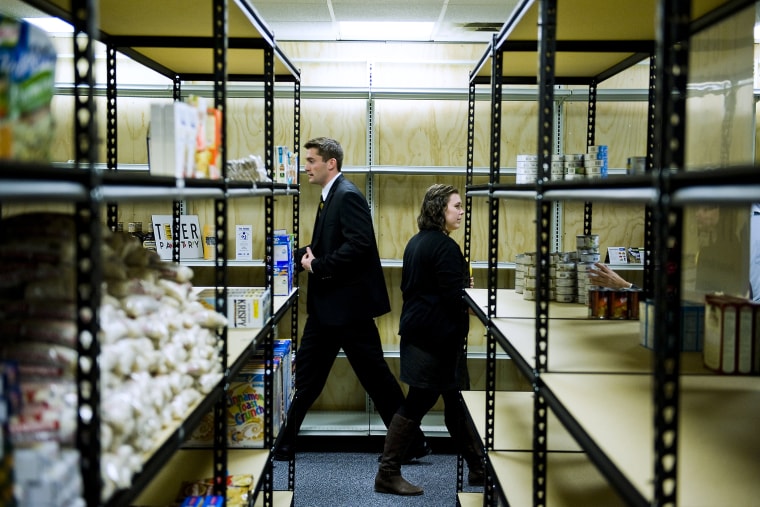New data from the country’s largest emergency food service network suggests that the number of college students in dire need of food assistance is at least in the millions. Nearly one-third of those surveyed in Feeding America’s 2014 Hunger in America report report that they've had to choose between paying for food and covering educational expenses at some point in the last year.
The msnbc.com community responded to The hunger crisis in America’s universities:
"When I was in graduate school, we received food through WIC. After I received my degree and started making a bit more money we stopped taking WIC benefits even though we still qualified. It's not about a 'stigma' it's about integrity. I didn't feel any stigma when we needed the WIC assistance, but we also didn't take it after we felt like we would make it on our own."'
"One thing the article doesn't mention is the food insecurity among faculty. 75% of faculty on any campus are contingent faculty paid by the class and only earning about $25,000/year, with no work in the summer. Many of them, especially those with families, are on food stamps and government assistance."'
"The future of the country and the well-being of succeeding generations depend on the education levels of the population. We should be helping students not placing onerous barriers to higher education. We should also see to it that people who have difficulty affording food get enough to eat."'
"30 years later I still carry the fallout of 'food insecurity' which took me from 128 to 90 lbs. The stigma of any type of aid drilled into me by my conservative upbringing saw to that."'
"When I moved off campus and started living on my own, I usually fasted twice a week to save money and I spent a lot of time eating noodles and peanut butter and Jelly. This was part of the learning experience and I learned to save my money and grow."'
"Countries in Europe have a free college education. While I am not advocating that we give a free college education to every person in the US, I think we are not doing students a service in making it so difficult that they starve themselves. We used to have many ways to help students in college and now it seems they have to go tens if not hundreds of thousands of dollars in debt just to get an education."'
Read the full story here: The hunger crisis in America’s universities
